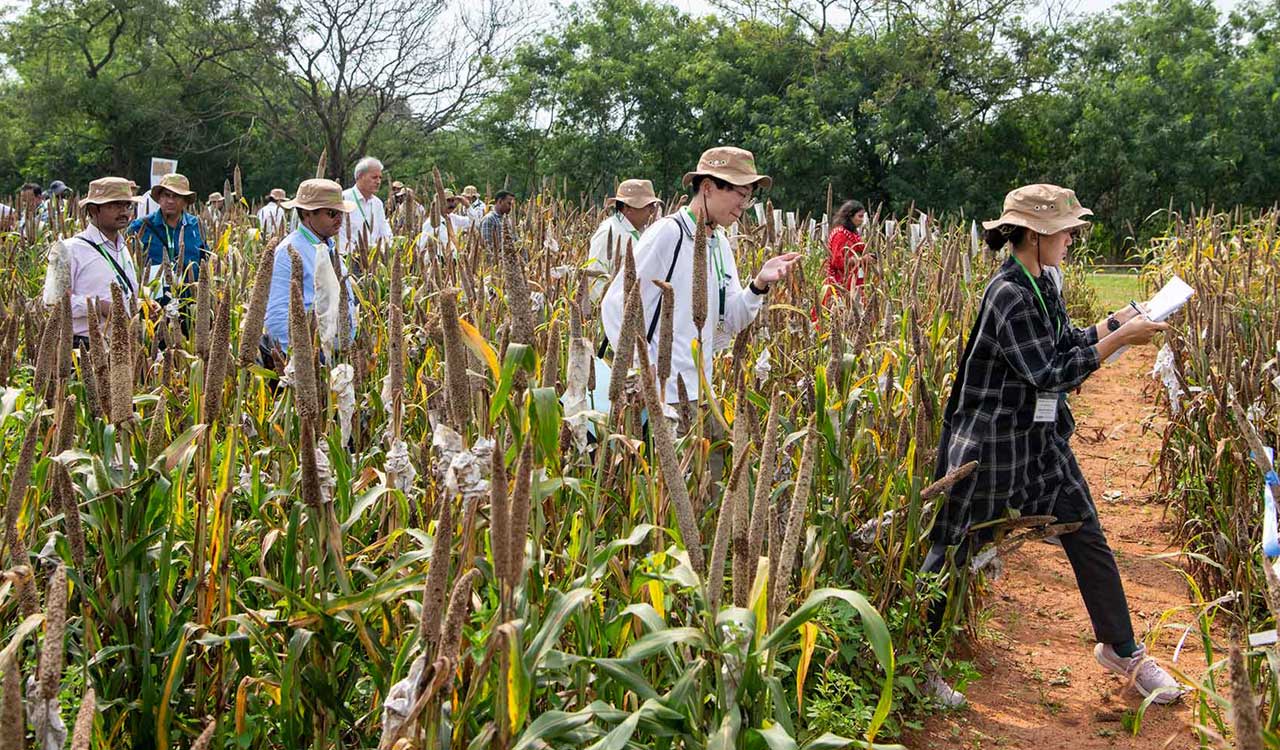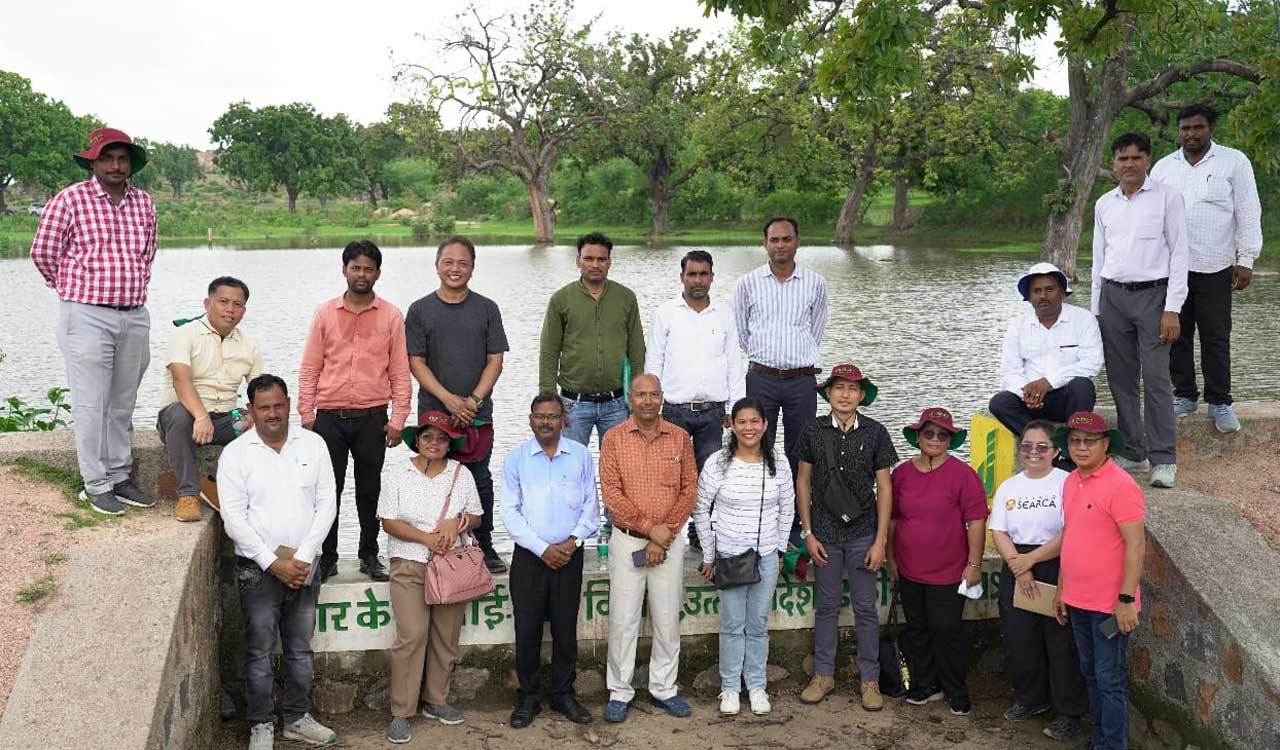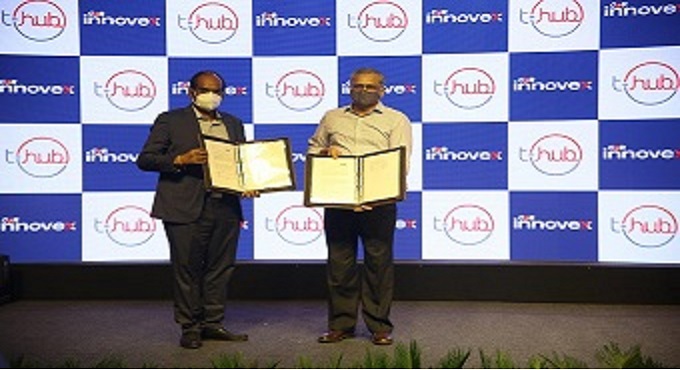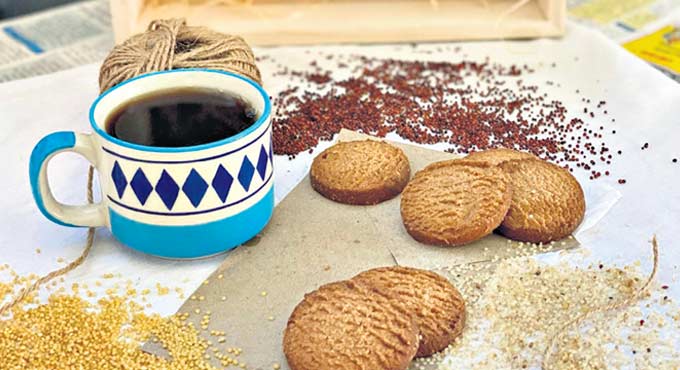ICRISAT hosts pearl millet scientists’ field day in Hyderabad
Over 90 scientists from the public and private sectors explored 15,000 pearl millet unique breeding lines planted in the display fields

Sangareddy: The International Crops Research Institute for the Semi-Arid Tropics (ICRISAT) hosted its biennial pearl millet scientists’ field day. Over 90 scientists from the public and private sectors explored 15,000 pearl millet unique breeding lines planted in the display fields.
Participants from India, Japan, Brazil, and the USA selected breeding material for research focused on cultivars with combination traits, such as higher yields and resistance to biotic and abiotic stresses. Innovations like biofortified forage and multi-cut summer pearl millet were prominent in the discussions and selections.
In his inaugural address, ICRISAT’s Deputy Director General – Research, Dr Stanford Blade, highlighted the growing recognition of millet as a “smart food,” building on the visibility it gained during the International Year of Millets (IYoM) 2023.
“This is a unique group. It’s great to see the public and private sectors together here. Though we come from various organisations with different interests, we are united in our goal of developing new cultivars that will positively impact lives and livelihoods,” Dr Blade said, emphasizing the power of collaboration.
Dr Sean Mayes, ICRISAT’s Global Research Program Director, chaired the two-day event held on October 3 and 4 on the premises of the ICRISAT campus in Patancheru and co-chaired by Dr T Napolean, Principal Scientist at the Indian Institute of Millets Research (IIMR), representing IIMR Director Dr Tara Satyavathi.
“Pearl millet is a key crop for the future. With significant genetic gains driven by your efforts, it plays a crucial role in food and nutrition security. ICRISAT’s hybrid parents research consortium has been making a meaningful impact for 20 years, benefiting local and international seed industry partners,” said Dr Mayes.
ICRISAT scientists played a key role in guiding the participants through various activities. Dr SK Gupta, Principal Scientist-Pearl Millet Breeding, led the tour of 15,000 breeding plots, showcasing materials with desirable traits for adaptation.
During the feedback session, he highlighted the efforts of ICRISAT towards the development of breeding materials for drought ecology through shuttle breeding and also informed about the different strategies practised to breed for blast resistance.
Dr Rajan Sharma, Principal Scientist-Crop Protection & Seed Health, and his team demonstrated screening protocols for disease-tolerant donor parents at the Downy Mildew and Blast Nurseries, and the Genebank team provided an overview of the genetic resources available for pearl millet research.
Related News
-
Cartoon Today on December 25, 2024
2 hours ago -
Sandhya Theatre stampede case: Allu Arjun questioned for 3 hours by Chikkadpallly police
3 hours ago -
Telangana: TRSMA pitches for 15% school fee hike and Right to Fee Collection Act
3 hours ago -
Former Home Secretary Ajay Kumar Bhalla appointed Manipur Governor, Kerala Governor shifted to Bihar
3 hours ago -
Hyderabad: Organs of 74-year-old man donated as part of Jeevandan
3 hours ago -
Opinion: The China factor in India-Nepal relations
3 hours ago -
Editorial: Modi’s Kuwait outreach
3 hours ago -
Telangana HC suspends orders against KCR and Harish Rao
4 hours ago



